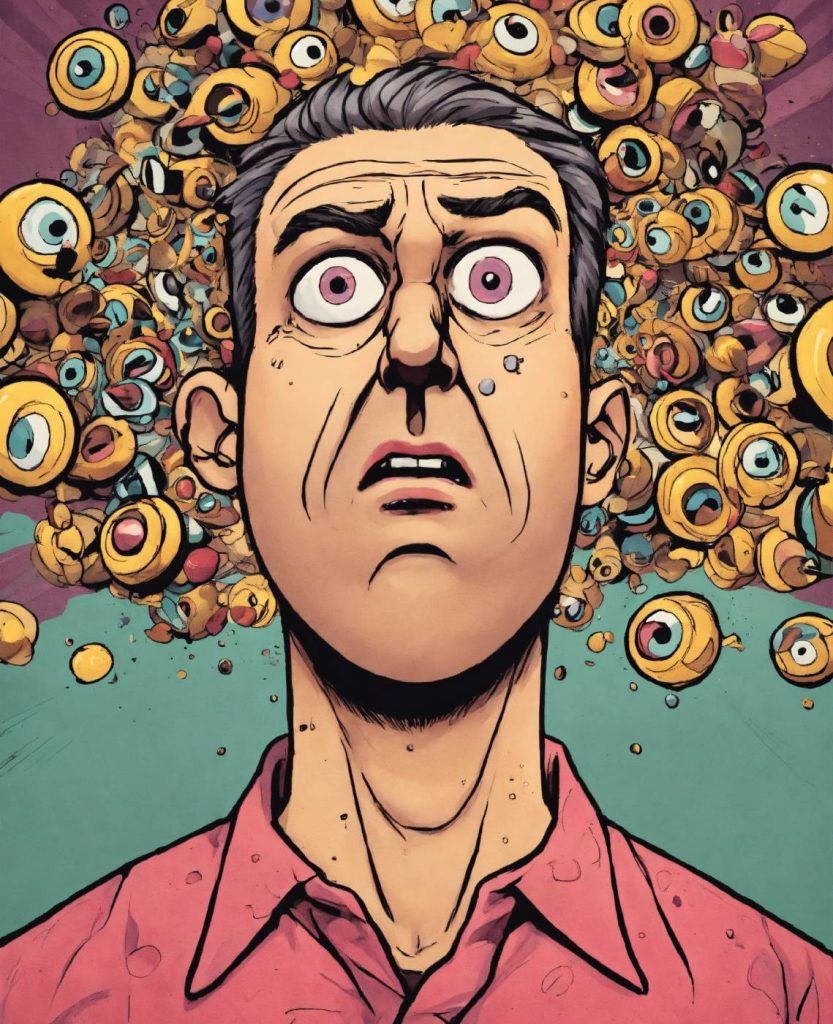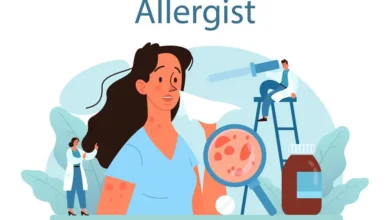Feeling Anxious? Try these 7 simple steps to find calm!
Beat anxiety with these mindfulness techniques you haven’t tried!

In today’s fast-paced world, it’s common to feel overwhelmed by the constant demands and pressures that come our way. The relentless cycle of stress can often manifest as eagerness, leaving us feeling on edge and restless. If you find yourself caught in this turbulent whirlwind of emotions, fret not; there are simple yet effective ways to navigate through the storm and find your inner calm.
Imagine a life where, instead of being consumed by worry and fear, you have the tools to soothe your anxious mind and restore balance within yourself. In this article, we’ll share five steps to find peace in chaos. From mindful breathing exercises to grounding techniques, these strategies are designed to empower you in moments when stress threatens to take control. So, if you’re ready to embark on a journey towards serenity and tranquility, let’s dive into these transformative practices together!
Chapter 1: Understanding Anxiety
Anxiety is a common issue in today’s busy world. Various factors contribute to keenness, such as genetics, environment, trauma, and stress. Propranolol offers hope by easing symptoms. Let’s explore eagerness and ways to find relief.

What is anxiety?
Anxiety: worry, nervousness, fear. IIt can be overwhelming and affect many people around the world. Genetic, environmental, and psychological factors may cause it. They can cause symptoms such as a fast heartbeat, trouble breathing, shaking, and sweating. Treatments for it usually involve a combination of therapy, medication, and lifestyle changes. One common medication used to manage anxiety symptoms is propranolol, which helps by blocking the effects of adrenaline in the body.
The amount of propranolol prescribed will vary depending on the person’s needs and medical history. It’s important to work with a healthcare provider to determine the right dose and watch for any side effects. Overall, treating anxiety is a personal process that might include medication, therapy, and self-care strategies to promote mental well-being.
Types of anxiety disorders
Do you ever find yourself feeling excessively worried or anxious about everyday situations? You might have GAD. Along with constant worrying, you may also experience physical symptoms like muscle tension, restlessness, and difficulty concentrating.
Another type of condition that some people experience is called panic disorder. This can involve sudden and intense fear episodes known as panic attacks. During a panic attack, a person may feel their heart racing, sweat excessively, and tremble. They may also feel like something bad is about to happen. It can be a scary experience, but there are ways to manage and treat these conditions.
Social anxiety disorder revolves around an extreme fear of social situations where the individual may be scrutinized or judged by others. This can lead to avoidance behaviors that impact daily life and relationships. Specific Phobias involve intense fear of particular objects or situations, such as heights, spiders, or flying. Treatment includes therapy, medication like SSRIs, and lifestyle changes.
Causes of Anxiety
Anxiety can stem from genetics, brain chemistry, or trauma.One important cause of this is chronic stress, which can lead to the overactivation of the body’s fight or flight response. This constant state of alertness can result in heightened feelings of eagerness and panic attacks.
Another significant contributor to stress is environmental factors such as major life changes or ongoing issues like financial strain or relationship difficulties. These external stressors can elevate feelings of worry and unease, making it challenging for individuals to manage their keenness levels effectively. In some cases, therapy and propranolol may help with symptoms.
Chapter 2: My experience with anxiety
Ever felt a persistent voice whispering worst-case scenarios? It was my reality for years. Rollercoaster journey with panic attacks and self-doubt. Propranolol offered hope in managing the storm within. Unraveling stress, finding the right dosage—a game-changer in the battle against an invisible foe.
Early signs and symptoms
Recognizing the early signs and symptoms of stress is crucial for timely intervention and effective management. These can manifest in various ways, such as restlessness, irritability, and difficulty concentrating. By understanding these subtle cues, individuals can take proactive measures to prevent this from escalating into more severe conditions.
Moreover, exploring the root causes of anxiety is essential for tailored treatment plans. Besides genetic predispositions and environmental factors, lifestyle choices and stress levels also play key roles in triggering symptoms. Identifying these triggers empowers individuals to make informed decisions that promote mental well-being.
In cases of acute anxiety attacks, medications like propranolol are commonly prescribed to alleviate symptoms quickly. Determining propranolol dosage considers medical history and the severity of symptoms. Healthcare professionals provide personalized stress management with minimal side effects.
Impact on daily life
It can greatly affect daily life, impacting work productivity and personal relationships. The causes of stress are complex, coming from genetics, environment, and psychology. For individuals facing anxiety attacks, the abrupt onset of intense fear or worry can be debilitating and disruptive.
Finding the right treatment for it is crucial to managing its effects on daily life. Propranolol, a beta-blocker commonly used to treat anxiety symptoms by reducing the body’s physical response to stress, has shown promising results for many individuals. Finding the right propranolol dose is key to symptom relief and fewer side effects.
Taking proactive steps to address anxiety and explore effective treatment options can significantly improve the overall quality of life. By seeking professional support and actively working towards managing anxiety symptoms, individuals can regain control over their daily routines and relationships. It’s key to recall that anxiety varies for each person, so finding personalized strategies that work best for each individual is key to reclaiming a sense of balance and peace in daily life.
Seeking help
Getting help for anxiety is important for mental health. Recognizing the causes of anxiety, whether it be external stressors or internal triggers, is vital in understanding and addressing these overwhelming feelings. Anxiety attacks can often leave individuals feeling paralyzed and helpless, but reaching out for support can provide relief and guidance.
When considering anxiety treatment options, medications like propranolol may be beneficial. Consult a doctor for the correct dosage. Seeking help shows strength, not weakness. By taking proactive steps toward managing anxiety, individuals can regain control over their minds and begin the journey toward healing and resilience.
Ultimately, seeking help for anxiety is an empowering choice that deserves recognition and support from those around you. Sharing your struggles can create deeper connections with loved ones and healthcare providers. Remember that you are not alone in this journey; there are resources available to guide you toward a path of recovery and peace of mind.

Chapter 3: Coping Mechanisms
Anxiety is prevalent in our fast-paced world due to pressure and information overload. Propranolol, a medication for high blood pressure, is also effective in reducing anxiety symptoms.
Therapy and counseling
Therapy helps with anxiety, a common mental health issue. Understanding the causes of anxiety is essential for effective treatment. While therapy helps individuals explore and process their emotions, it also equips them with coping mechanisms to navigate anxious thoughts and feelings.
Anxiety attacks can be debilitating, but therapy offers strategies to prevent and manage these intense episodes. In addition to traditional therapies, medications like propranolol can also be used to treat anxiety. Finding the right dosage of propranolol for each individual’s specific needs is crucial in achieving optimal results and alleviating symptoms of anxiety. By using therapy and medication together, people can improve their mental health. Medication is important for treating it, a widespread condition with various causes and severe symptoms. Propranolol, a beta-blocker commonly used for treating high blood pressure and performance anxiety, has also been found effective in reducing physical symptoms of anxiety, such as rapid heart rate and trembling hands.
When it comes to propranolol dosage for anxiety, individual variability must be taken into account. Age, weight, and health affect the dosage needed for symptom management. Collaboration with a healthcare provider is key for individuals with anxiety to customize a medication regimen for their specific needs and mental well-being.
Lifestyle change
Lifestyle changes reduce stress and improve mental health. Exercise, sleep, and nutrition help with anxiety. Mindfulness and yoga can also help.
One medication that is commonly prescribed for stress is propranolol. Finding the right dosage of propranolol for each individual’s needs is crucial to effectively managing this. However, it’s important to remember that lifestyle changes should complement medication rather than replace it entirely in treating these disorders.
Chapter 4: Overcoming
It lurks in minds worldwide, gripping millions. Can propranolol free us from this mental prison? Discover its calming effects and reclaim life from stress’s grasp. Rewrite the narrative and embrace a fearless future.
Facing fears
Facing fears is tough because stress can hold us back from reaching our potential. The causes of these are complex and multifaceted, ranging from genetic factors to past traumas. It’s crucial to remember that you are not alone in this struggle. Seeking treatment for anxiety is a brave step towards overcoming your fears and reclaiming control over your life.
One common medication used to treat stress is propranolol, which helps reduce physical symptoms such as racing heartbeats and trembling hands. The optimal dosage of propranolol for anxiety can be determined based on an individual’s unique needs and response to the medication. It’s important to work closely with a healthcare provider to find the right dosage that effectively manages your symptoms without causing adverse effects. Remember, facing your fears may be difficult, but taking small steps toward confronting them can lead to significant personal growth and empowerment.
Building resilience
Building resilience is not about avoiding stress altogether but rather learning to navigate through life’s challenges with grace and strength. Understanding the root causes of stress can provide valuable insight into how to combat it effectively. Anxiety attacks can feel overwhelming, but by focusing on deep breathing and grounding techniques, individuals can regain control in moments of distress.
One treatment option for stress that has gained popularity is propranolol. This beta-blocker medication can help alleviate physical symptoms, such as a racing heart or trembling hands. By incorporating a combination of coping mechanisms and medical intervention when needed, individuals can build resilience in the face of anxiety and emerge stronger than ever before.
Finding support
One effective way to find support for anxiety is by building a strong network of understanding and compassionate individuals who can provide emotional encouragement and practical assistance. It’s important to remember that seeking help is not a sign of weakness but rather an act of self-care and self-awareness. Having non-judgmental support can reduce isolation and increase belonging.
Additionally, explore different treatment options. Some effective ways to manage anxiety symptoms include seeking professional help, such as therapy and medication like propranolol, and incorporating practices like yoga and meditation. Identifying the root cause of anxiety can help develop coping strategies tailored to individual needs. By actively seeking out diverse forms of support, you open up opportunities for growth, resilience, and, ultimately, a greater sense of well-being in the face of challenges.

Chapter 5: Living with anxiety
Living with anxiety can feel like walking on a tightrope suspended between the known and the unknown, where every step is fraught with uncertainty and fear. For some, anxiety is an occasional visitor that comes and goes like a fleeting shadow. For others, it’s a constant companion, whispering doubts and insecurities in their ears with relentless persistence. But regardless of its form or intensity, one thing is certain: anxiety affects us all in various ways.
From the racing heartbeats to the restless nights spent tossing and turning in bed, it manifests itself differently for each individual. While some may trace its roots to past traumas or stressful life events, others find themselves tangled in its web without any clear reason. This complex interplay of genetic predispositions, environmental factors, and psychological triggers makes unraveling the causes of anxiety akin to solving a puzzle with missing pieces. Amidst this labyrinthine journey towards understanding anxiety lies a beacon of hope for many: propranolol dosage for anxiety, a medication that offers relief by calming the physical symptoms of unease without dulling the sharp edges of our emotions.
Managing triggers
Managing triggers is a vital aspect of dealing with anxiety. Whether it’s the fear of failure, social interactions, or even specific environments, identifying and working through triggers is crucial for mental well-being. In recognizing the underlying causes of anxiety, individuals can begin to confront these triggers head-on and develop effective coping mechanisms.
Anxiety attacks can be overwhelming, but understanding our triggers can prevent or minimize their occurrence. Seek professional help, practice relaxation techniques, and make healthy lifestyle changes to improve your overall well-being. Through therapy, medication such as propranolol for anxiety treatment, mindfulness practices, and self-care routines, it’s possible to manage triggers effectively and regain a sense of control over anxiety. It’s important to recognize that everyone’s journey to managing triggers will be unique and that a tailored approach is necessary to meet their individual needs and circumstances.
Self-care practices
Taking care of ourselves is very important when we feel stressed. This is a common problem that many people face around the world. Everyone has different reasons for feeling anxious, but it’s really important to find ways to cope with it. Doing things like meditating, exercising, and writing in a journal can help a lot.
In addition to regular treatments, there are other ways to deal with anxiety, like using a medicine called propranolol. When you talk to your healthcare provider about how much propranolol to take, it’s important to think about your overall health and what you need. Taking care of yourself in different ways can help you feel better and more balanced, which can also help your mental health.
Maintaining mental health
Maintaining mental health is a complex and ongoing process that requires attention and care. One common mental health issue can stem from various sources, such as past traumas, genetic predispositions, or stressful environments. It’s important to understand the underlying causes of anxiety in order to manage its effects successfully. Additionally, recognizing the symptoms of an anxiety attack and seeking appropriate treatment can help individuals regain control over their mental health.
One effective medication for treating stress is propranolol, known for its success in alleviating physical symptoms like rapid heartbeat or trembling hands. It’s important to talk to a doctor to figure out how much medicine is right for you. Ensuring the well-being of your mental health is equally paramount to maintaining your physical health. It is essential to seek assistance whenever necessary, as prioritizing mental health is a significant step towards a fulfilling life devoid of persistence.
Chapter 6: Helping others with anxiety
Join us on a journey to uncover how propranolol is offering hope and relief to those with anxiety disorders.
Supporting loved ones
Supporting a loved one in dealing with it can be a challenging yet rewarding journey. Understanding the underlying causes of their anxiety, such as genetics, environment, or past experiences, is crucial in providing effective support. Keep in mind that a stress attack can be overwhelming for both the individual and those around them; being present and offering reassurance can make a world of difference.
When it comes to seeking professional help for anxiety, treatments like cognitive-behavioral therapy and medications such as propranolol are common options. However, finding the right dosage and treatment plan may require patience and collaboration with healthcare providers. Offering encouragement and being a listening ear during this process can greatly support your loved one’s mental health journey.
Raising awareness
Raising awareness about stress is crucial in today’s fast-paced world, where stress levels are soaring. Understanding the causes of anxiety, such as genetic predisposition, environmental triggers, and lifestyle factors, can help individuals recognize and manage their symptoms. Anxiety attacks often strike unexpectedly, leaving individuals feeling overwhelmed and helpless. This is why it’s important to educate people about the signs of a stress attack and provide them with resources for seeking help.
One treatment option for managing anxiety is propranolol, a medication commonly used to reduce physical symptoms like rapid heartbeat and trembling. Finding the right dosage of propranolol for each individual is essential to effectively managing symptoms without causing adverse side effects. Through the dissemination of information about pharmacological treatments, such as propranolol, and by fostering a culture of candid discourse surrounding mental health concerns, we can effectively dismantle the negative perceptions associated with these disorders and facilitate greater access to necessary therapeutic interventions.
Advocating for mental health
Taking care of our mental health is more crucial now than ever before. Many things, such as our genes, environment, and thoughts and feelings, can cause anxiety. Knowing what triggers our anxiety is necessary to manage and overcome it. There are different ways to treat this problem, such as talking to a therapist or taking medication. However, recent studies have found that propranolol, a type of medication, can be very helpful in reducing symptoms of anxiety if taken in the right amount.
Advocating for mental health means creating a safe and supportive environment where people can ask for help without feeling ashamed or judged. It’s crucial to understand the importance of taking care of our mental health and knowing how to get help if we need it.

Chapter 7: Conclusion
Supporting individuals experiencing stress is critical to enhancing their well-being and overall quality of life. By demonstrating empathy, understanding, and offering practical assistance. Through collective efforts, we can break the stigma surrounding mental health and encourage open dialogue. By educating ourselves and reaching out to those in distress, we can demonstrate that they are not alone in their struggles. Reflections on the journey
While external stressors can play a role, it is often our internal dialogue that fuels the flames of anxiety. Recognizing negative thought patterns and working towards a more positive mindset can be powerful tools for managing anxiety proactively.
Hope for the Future
Stress can cloud our aspirations, but hope remains. Don’t numb the symptoms; seek solutions. Propranolol may help, but true healing lies in understanding your triggers. Embrace hope; reframe anxiety as a guide to self-discovery. Be patient; setbacks are part of growth. With treatment, you can find a brighter future.
Resources for further support
A multitude of resources are readily available to provide invaluable assistance in managing stress. From online therapy platforms to mindfulness apps, individuals can access a plethora of services tailored to their specific needs. Empower your well-being. Explore individual therapy, group support, or self-guided exercises to build resilience and manage stress effectively.



